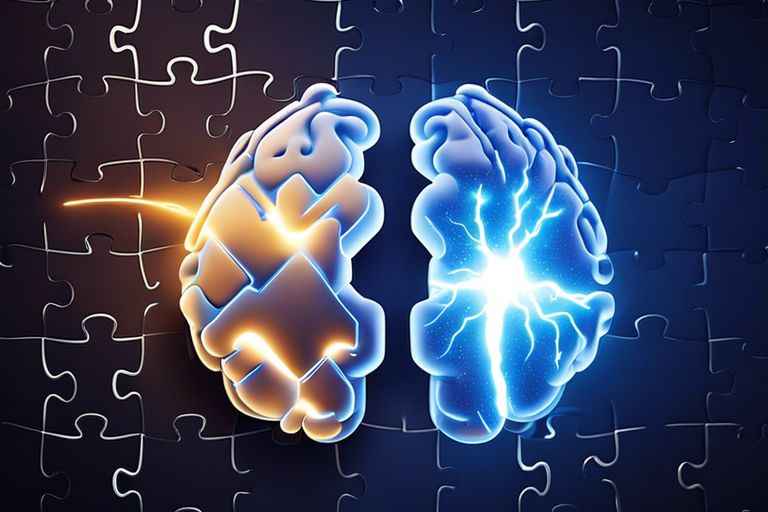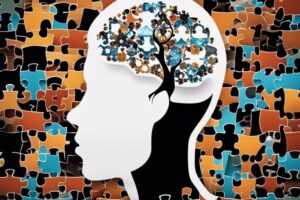Understanding the intricate relationship between autism and epilepsy is crucial for better care and management of individuals affected by these neurological conditions. Research suggests that there may be a strong correlation between the two, with up to 30% of individuals with autism also experiencing seizures. By delving into the shared mechanisms and common risk factors of autism and epilepsy, healthcare providers can offer more tailored treatment and support for those living with these conditions. To learn more about The Connection Between Autism and Epilepsy, visit here.
Key Takeaways:
- Autism and epilepsy may have potential relationships that require further investigation.
- Individuals with autism are at a higher risk of developing epilepsy compared to the general population.
- There is a need for comprehensive studies to understand the underlying mechanisms linking autism and epilepsy.

Theoretical Framework
Neurological Basis of Autism and Epilepsy
Understanding the neurological basis of both autism and epilepsy is crucial in exploring the potential relationships between the two conditions. Autism is a neurodevelopmental disorder characterised by difficulties in communication, social interaction, and repetitive behaviours. Research suggests that individuals with autism may have abnormal brain connectivity and differences in the development of certain brain regions, such as the amygdala and prefrontal cortex. On the other hand, epilepsy is a neurological disorder characterised by recurrent seizures, which result from abnormal electrical activity in the brain. The exact mechanisms underlying epilepsy are complex and can vary depending on the type of seizure and the part of the brain affected.
Studies have shown that there may be overlapping neural pathways and genetic factors that could potentially link autism and epilepsy. For example, both conditions have been associated with alterations in the function of neurotransmitters such as gamma-aminobutyric acid (GABA) and glutamate. Furthermore, abnormalities in neuronal migration and synaptic function have been reported in individuals with either autism or epilepsy. By delving deeper into the neurological underpinnings of these conditions, we can gain valuable insights into how they may be interconnected.
Genetics and Environmental Influences
Genetics and environmental influences play significant roles in the development of both autism and epilepsy. Autism has a strong genetic component, with certain genetic mutations and variations being linked to an increased risk of the condition. Similarly, epilepsy can be influenced by genetic factors, with some types of epilepsy having a clear hereditary pattern. Environmental factors such as prenatal exposure to toxins, infections, and maternal health during pregnancy can also contribute to the risk of developing autism or epilepsy.
Emerging research suggests that there may be shared genetic pathways between autism and epilepsy, indicating a potential genetic predisposition for co-occurrence. The interaction between genetic susceptibility and environmental factors is believed to play a critical role in the manifestation of both conditions. By investigating how genetics and environmental influences converge in the context of autism and epilepsy, we can further our understanding of the complex interplay between nature and nurture in these neurological disorders.
The interaction between genetic susceptibility and environmental factors is believed to play a critical role in the manifestation of both conditions. By investigating how genetics and environmental influences converge in the context of autism and epilepsy, we can further our understanding of the complex interplay between nature and nurture in these neurological disorders.
Clinical Manifestations
Signs and Symptoms of Autism
Autism is a neurodevelopmental disorder characterised by challenges with social skills, repetitive behaviours, and communication difficulties. Individuals with autism may exhibit restricted interests and sensory sensitivities. Common signs of autism include difficulties in understanding and expressing emotions, difficulty in making eye contact, and struggling with changes in routine. Some individuals with autism may also display stimming behaviours such as hand flapping or rocking.
Diagnosing autism involves observing a child’s behaviour and developmental milestones. Early signs may include delayed speech or lack of social interaction. A comprehensive evaluation by healthcare professionals, including developmental paediatricians and psychologists, is essential to formalise a diagnosis. Early intervention programmes can help individuals with autism develop essential skills and improve their quality of life.
Signs and Symptoms of Epilepsy
Epilepsy is a neurological disorder characterised by recurrent seizures. Seizures can vary widely in their presentation, from brief lapses of awareness or muscle jerks to violent convulsions. Other symptoms may include staring spells, temporary confusion, or loss of consciousness. The frequency and severity of seizures can differ among individuals with epilepsy.
Epilepsy can be caused by various factors, such as genetics, brain injury, or infections. Diagnostic tests like EEG (electroencephalogram) and brain imaging may be conducted to confirm the presence of epilepsy. Medication and lifestyle changes are often recommended to manage seizures and improve the quality of life for individuals with epilepsy.
Intersection of Autism and Epilepsy Symptoms
Individuals with both autism and epilepsy may face unique challenges due to the intersection of symptoms. Some individuals with autism may have difficulties communicating their symptoms of epilepsy, leading to underdiagnosis or delayed treatment. It is crucial for healthcare professionals to be aware of the potential relationship between autism and epilepsy to provide appropriate care and support.

Diagnosis and Management
When it comes to autism and epilepsy, the diagnosis and management play a crucial role in determining the quality of life for individuals affected by these conditions. Understanding the potential relationships between autism and epilepsy is essential to provide appropriate care and support.
Diagnostic Challenges
Due to the overlapping symptoms and co-occurrence of autism and epilepsy, diagnosing these conditions accurately can be challenging. Individuals with autism may have difficulties in expressing their symptoms, while seizures in individuals with epilepsy can present in various ways, leading to potential misdiagnosis. Additionally, the presence of cognitive impairments in individuals with both conditions can further complicate the diagnostic process.
Moreover, the complex nature of autism and epilepsy requires healthcare professionals to have a multidisciplinary approach to assessment and diagnosis. Collaboration between neurologists, psychiatrists, psychologists, and other specialists is essential to ensure a comprehensive evaluation and accurate diagnosis.
Therapeutic Interventions and Support
Effective therapeutic interventions and support are crucial in managing autism and epilepsy. Individualised treatment plans that address the unique needs of each individual are key to improving outcomes. Medications, behavioural therapies, and lifestyle modifications are commonly used to manage the symptoms of both conditions.
Furthermore, early intervention is vital in improving the prognosis for individuals with autism and epilepsy. Providing access to appropriate support services, such as speech therapy, occupational therapy, and special education programmes, can significantly enhance the quality of life for individuals affected by these conditions.
It is important to emphasise the importance of ongoing monitoring and adjustment of treatment plans to meet the evolving needs of individuals with autism and epilepsy. Regular follow-ups with healthcare professionals and continuous assessment of symptoms are essential to ensure optimal management and support.

Research and Future Directions
As we examine deeper into the complex relationship between autism and epilepsy, it is essential to examine the latest research findings and explore future directions for understanding and addressing these co-occurring conditions.
Recent Studies on Autism and Epilepsy
Recent studies have shed light on the intricate connections between autism and epilepsy, highlighting the heightened risk of epilepsy in individuals with autism spectrum disorder (ASD). Researchers have identified common genetic variations that may contribute to the co-occurrence of these conditions, paving the way for targeted intervention strategies.
Furthermore, recent research has underscored the importance of comprehensive assessments and tailored treatment plans for individuals with both autism and epilepsy. By elucidating the underlying mechanisms linking these two conditions, researchers are moving closer towards more personalised and effective interventions to improve the quality of life for individuals affected by autism and epilepsy.
Emerging Therapies and Technologies
Advancements in emerging therapies and technologies offer promising avenues for the management of autism and epilepsy. Innovative approaches such as neuromodulation techniques and personalised therapies show great potential in addressing the unique challenges faced by individuals with both conditions.
One such noteworthy development is the use of non-invasive brain stimulation techniques to modulate brain activity and reduce seizure frequency in individuals with autism and epilepsy. These cutting-edge technologies hold tremendous promise for improving outcomes and enhancing the overall well-being of individuals living with these co-occurring conditions.
Autism and Epilepsy – Examining Potential Relationships
Research into the potential relationships between autism and epilepsy has revealed intriguing connections that could aid in understanding these complex neurological disorders. While the exact nature of the relationship is still not fully understood, studies have shown a higher prevalence of epilepsy among individuals with autism, indicating a possible link between the two conditions. Further investigation is needed to determine the underlying mechanisms that may contribute to this association and to develop more tailored interventions for individuals who are affected by both autism and epilepsy. By delving deeper into these potential relationships, we can enhance our knowledge of these conditions and provide better support and care for those who are impacted by them.
FAQ
Q: What is the relationship between Autism and Epilepsy?
A: Research suggests a potential relationship between Autism and Epilepsy, with studies indicating a higher prevalence of epilepsy in individuals with autism compared to the general population.
Q: Is there a known cause for the potential relationship between Autism and Epilepsy?
A: The exact cause of the relationship between Autism and Epilepsy is not yet fully understood. However, it is believed to be linked to underlying neurological factors that may be common to both conditions.
Q: How common is it for individuals with Autism to also have Epilepsy?
A: Studies have shown that epilepsy occurs in around 20-25% of individuals with Autism Spectrum Disorder (ASD), which is a significantly higher rate than in the general population.
Q: Are there specific types of seizures that are more common in individuals with Autism?
A: While various types of seizures can occur in individuals with Autism, some studies suggest that complex partial seizures and generalised tonic-clonic seizures are more prevalent in this population.
Q: Does having Epilepsy impact the symptoms and behaviours associated with Autism?
A: There is evidence to suggest that seizures can exacerbate certain symptoms of Autism, such as difficulties with communication and social interaction. Effectively managing epilepsy may help improve overall quality of life for individuals with both conditions.
Q: How important is early detection and treatment of Epilepsy in individuals with Autism?
A: Early detection and appropriate treatment of epilepsy in individuals with Autism are crucial in order to reduce the frequency and severity of seizures, as well as to improve long-term outcomes and quality of life for the individual.
Q: What should caregivers and healthcare professionals be aware of when dealing with individuals with both Autism and Epilepsy?
A: Caregivers and healthcare professionals should be vigilant in monitoring for signs of seizures, as individuals with Autism may exhibit atypical symptoms. Collaborative care that considers both conditions is essential for providing the best possible support and treatment outcomes.







